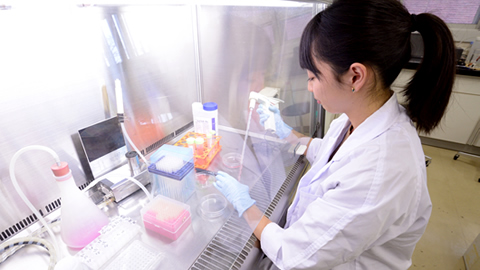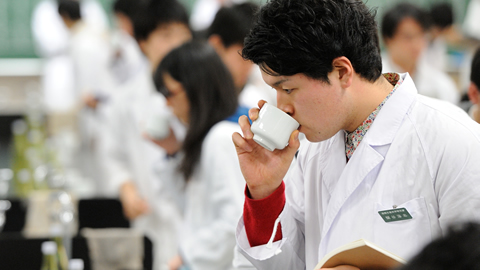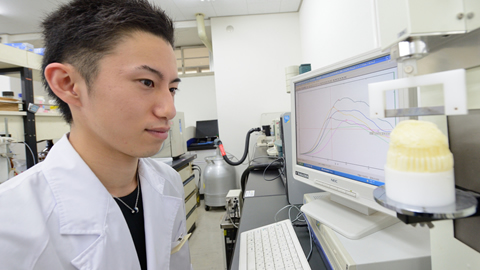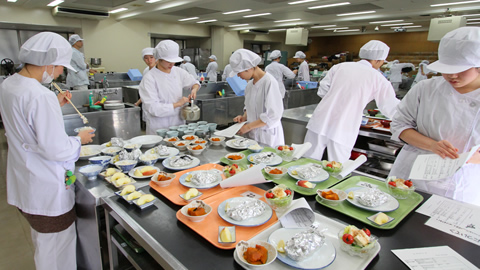Faculty of Applied Biosciences
Pioneering Future Earth through the “Bio”
The Faculty of Applied Biosciences approaches the phenomena of life through Biology as well as Chemistry, and is advancing to the forefront of the Agricultural Sciences. The objectives of this faculty are to understand fundamental biological reactions using the latest theories and technology, and apply this understanding toward the improvement of human living, while at the same time addressing environmental issues concerning the atmosphere, aquatic quality, and the soil.
We have a unique curriculum constructed from the basics, that builds up to the applications. In our educational system, students will learn through experimentation and practical sessions on Organic Chemistry, Biochemistry, Microbiology, and Molecular Biology, using the latest, state-of-the-art instruments, facilities, and utilities. Our research is conducted through close collaboration between students and teaching staff, ensuring students will acquire the necessary knowledge and techniques, and be able to digest them as their own.
This faculty has four educational policies:
To acquire research techniques in the Applied Biosciences and advanced Life Sciences
The extensive utilization of biotic resources, and the sustainable production of food, in life-related industries and regional societies
To promote extensive guidance on food and nutrition based on a wide range of knowledge acquired on these subjects
To communicate with global educational research institutions and contribute to the advancement of new life-related industries and educational research
The educational research fields in this faculty are held in close regard by various chemical industries such as the food, pharmaceutical, cosmetic and agricultural chemical industries. Our established frameworks are to provide opportunities for students to gain qualifications for jobs such as a Registered Dietitian, and to nurture professionals with advanced skills through graduate level education. We are waiting for you to join us.
Departments
General Education
Office of Foreign Language
TERAMOTO Akiko, Professor
TANIMOTO Yoshiko, Assistant Professor
Lab. of Health and Sports Science
Laboratory of Science Journalism
Attached to the Faculty
Institute of Applied Bioscience
Director HOMMA Kazuhiro, Professor
Food Processing Center
Director YAMAMOTO Yuji, Professor
NOGUCHI Tomohiro, Professor
ONO Wataru,
Research Assistant




